
Ttrans-disciplinary
Experience
This section outlines the journey of my transdisciplinary exploration through major projects. It highlights the methodological approaches and key elements in the design and delivery processes aimed at addressing challenges identified by key stakeholders in three domains: rural sustainability, Chinese diasporas and global seafarers.

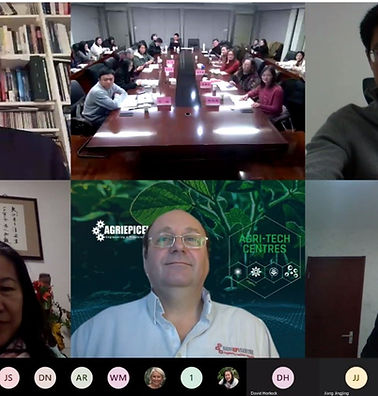_SAU_Dave%20Ross%20(Agri-EPI)_Taidong%20Zhou%20(CIKD)_Xiuli%20Xu%20(C.jpg)
2021-2022
The Early Career Researcher Consortium of Future Rural Studies
The project’s heartbeat was its Early Career Researcher Consortium of Future Rural Studies (CFRS), designed to turn theory into action. Six co-designed work packages empowered ECRs to partner with agribusinesses and policymakers, addressing shared priorities like climate-resilient farming and equitable food systems. Amid lockdowns, creativity thrived: virtual “methodological salons” connected ECRs with 16 mentors, while surveys mapped industry needs, aligning research with real-world challenges. By weaving together farmer-led insights from Sichuan’s terraces and data-driven models from British labs, the consortium forged a transdisciplinary playbook—where soil scientists debated with economists, and drone technologists brainstormed with village cooperatives.
From these collaborations emerged more than just papers—ECRs co-authored policy roadmaps, prototype technologies, and cross-border partnerships. The consortium proved that even in a fragmented world, young scientists could bridge divides, turning Zoom screens into portals of collective ingenuity. As one participant reflected, “We’re not just building networks—we’re planting seeds for a food system that learns from every landscape.” This legacy of trust and shared purpose now fuels a new generation of innovators, determined to harvest solutions from the ground up.
Wu, B., Cao, C., Mosey, S., Daniell, T., Noy, P., Cui, Y., Rose, M. and Snape, J., 2025. How does global agricultural research and innovation cooperation influence agricultural R&I system transformation in the South? Evidence from UK-China cooperation. Food Policy, 131, p.102813.
Kalidou, A.I., Qi, G., Ndimbo, G.K. and Wu, B., 2024. The value of indigenous knowledge for enhancing smallholders’ resilience to climate change and food insecurity: a case study of small-scale irrigation system in Niger. International Journal of Agricultural Sustainability, 22(1), p.2406062.
Wu, B., Noy, P., Daniell, T. et al. 2023. Research Report on UK-China Cooperation in Agricultural Research and Innovation, Beijing: British Embassy, CAAS and UoN.
Wu, B. 2022. Systematic Innovation Approach for Future Rural Studies in the Global South: A Research Report on Building a Platform for UK-China ECR Collaboration, Nottingham: Nottingham University Business School.
2019-2020
Cooperative ecosystem to empower small farmers in China
Building on past successes, our GCRF-funded project, in partnership with Sichuan Agricultural University and under a UoN-Sichuan agreement, aimed to boost China's agricultural innovation and fight poverty. We began by identifying challenges and shared goals in Sichuan, focusing on agricultural innovation. Key partners like James Hutton Ltd (UK), YouChange Foundation (China), and CAU joined us in this endeavor.

To ensure our research genuinely benefited the regions most in need, we closely integrated the project with national poverty alleviation strategies, conducting fieldwork in three Ethnic Minority (Tibetan and Yi) Prefectures of Sichuan, the poorest region in China. To build consensus, mobilize resources, and officially launch the project, we meticulously planned and successfully organized the "University-Province Summit," an international event, along with a productive roundtable meeting, which greatly stimulated the enthusiasm of all stakeholders. Throughout the project, we focused on developing a transdisciplinary research framework and provided systematic methodological training to all frontline stakeholders through participatory observation and knowledge exchange. Everyone gathered, discussed, and exchanged ideas, ultimately sparking intellectual brilliance. These valuable outcomes not only formed clear roadmaps for future development and practical policy recommendations but also led to a series of academic publications and training programs, paving the way for deeper transdisciplinary research and innovation cooperation in the future, and contributing our part to local agricultural development and livelihood improvement.
Wu, B., Fu, X., Wang, X., et al. 2020. Cooperative Ecosystem to Empower Small Farmers in the Poor Areas of China: Case Studies of Sichuan, A Report of UoN-GCRF Pilot Project, Nottingham: NUBS.
2009-2010
Farmer innovation system in the Loess Plateau
Our journey began under the banner of the ESPA (Ecosystem Services and Poverty Alleviation) programme, a collaborative mission bringing together bright minds from the University of Nottingham, China Agricultural University, Northwest A&F University, and the Forestry Development Research Centre. We weren't alone; government agencies and NGOs from both the UK and China joined our ranks. Our shared dream? To build a vibrant platform where British and Chinese researchers could break down disciplinary silos and work hand-in-hand. We aimed to delve deep into the intricate dance of local ecosystems, truly understand the diverse innovation needs and incredible capacities of farmers, and uncover the best ways to weave their ingenuity with government efforts to tackle poverty and protect our planet.
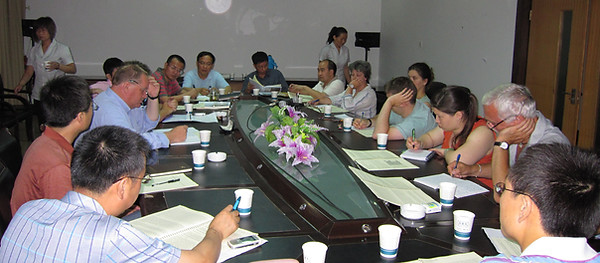
The first step was a crucial one: sitting down together—researchers, government officials, and NGO representatives—to map out the challenges, pinpoint our common interests, and identify everyone who needed a seat at the table. With this foundation, we co-designed field research that sent 20 researchers, a mix of natural and social scientists from both the UK and China, across the region. Through immersive, participatory observation, they didn't just collect data; they co-created roadmaps and pathways for truly transdisciplinary cooperation. The insights and breakthroughs from this fieldwork weren't just filed away. We actively consolidated these findings, using them to forge lasting partnerships through international conferences, dynamic workshops, insightful seminars, joint funding applications, and impactful publications, ensuring our collaborative spirit would continue to thrive at both institutional and individual levels.
2012-2018
Nottingham Chinese Community Cohesion and Integration
Our journey into understanding and supporting Nottingham's Chinese community began by reflecting on the lessons learned from the NAA project. We realized that to truly make a difference, we needed to listen deeply. So, from 2012 to 2018, we embarked on a collaborative mission, designing and carrying out a comprehensive questionnaire survey. . We partnered with universities, councils, community groups, and student leaders to conduct a wide-ranging survey. Our aim was to grasp the community's decade-long transition, identify the diverse needs of its members – from entrepreneurs to students – and explore how universities could champion integration, both within the Chinese community and with wider Nottingham.
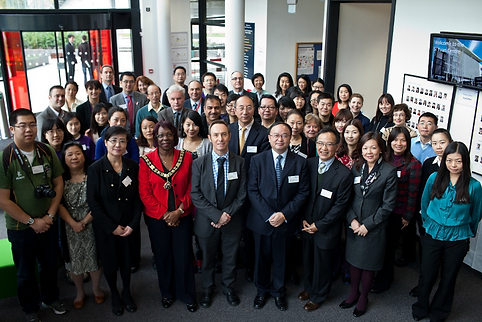

The insights we gathered were powerful, leading to a wave of impactful actions and outcomes. We didn't just want to understand integration; we wanted to actively nurture it – both within the diverse groups of the Chinese community itself and between the Chinese community and other ethnic groups across Nottingham and beyond. Our findings were distilled into the "Nottingham’s Chinese Community in Transition" report in 2013, sparking important policy conversations. We shared our knowledge at an ESRC Festival of Social Science Workshop and saw our work recognized in the REF 2014 Impact Case for its engagement with Chinese migrant communities. Beyond reports, we addressed practical needs, such as developing a research report on safety awareness for international students for the Nottinghamshire Police and Crime Commissioner. And on a personal note, I founded and chaired the Si Yuan Ping-Pong Club, a wonderful initiative using the simple joy of table tennis to promote intercultural communication and community spirit. These efforts, alongside numerous keynote speeches, publications, and media features, all aimed at building a more cohesive and welcoming Nottingham for everyone
Wu, B. 2013. Nottingham's Chinese Community in Transition: A survey of community cohesion, integration and university engagement, Nottingham: SCCS.
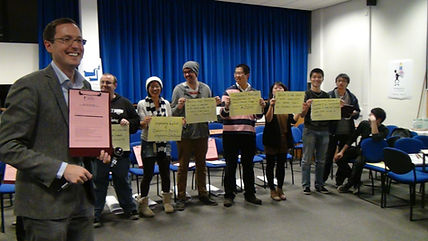
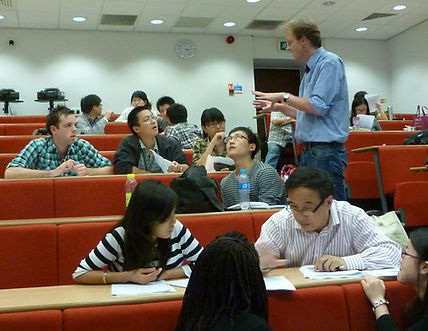
2011-2012
Global citizenship, cross-cultural communication & engagement with Chinese society
Inspired by recommendations from an ILO-UoN workshop, I embarked on a mission in 2011-2012 to help university students broaden their horizons. Working with a fantastic team of local and national stakeholders, I developed and delivered a unique Nottingham Advantage Award (NAA) course. This wasn't about grades; it was about fostering a sense of global citizenship. We focused on real-world engagement to tackle four key challenges facing the Chinese community, including students from China: navigating NHS services, sharing Chinese culture with UK-born generations, overcoming social isolation, and boosting safety awareness and support.
Over 300 Nottingham students dived into this project, benefiting from a range of hands-on opportunities. They heard directly from key stakeholders in guest lectures, brainstormed solutions in open-space workshops, and then rolled up their sleeves to refine and implement their group projects right in the community. We even showcased their inspiring work at a "China Corner" during the University Open Day. The impact didn't stop there; this initiative led to lasting legacies, including Nowe Community International, a vibrant student-led volunteer group, and the Nottingham Chinese Forum, a regular roundtable fostering dialogue between local councils, NGOs, community leaders, and the university.
Wu, B. 2016. Chinese student diaspora, social networking and local engagement in England: An empirical study, Journal of Chinese Overseas, 12(1): 40-67
2001-2018
Global seafaring labour market and Chinese seafarers’ career
My journey into the world of global seafaring began with a foundational project from 2001-2003 at Cardiff University, where I helped build the first-ever global seafarer database by meticulously collecting and processing crew lists from major seaports worldwide. This sparked a deep interest in the lives of seafarers, leading me to explore the experiences and career barriers of Chinese seafarers in international shipping (2003-2007) through interviews, onboard observations, and surveys in collaboration with key maritime organizations. Building on this, from 2008-2010, I partnered with shipping companies and maritime universities to better understand Chinese trainee recruitment and training, aiming to boost their performance and their contributions back to their home communities. Most recently (2016-2018), I worked directly with international shipping companies on a survey project to address the challenges Chinese seafarers face, fostering long-term career planning and retention in this vital global industry.
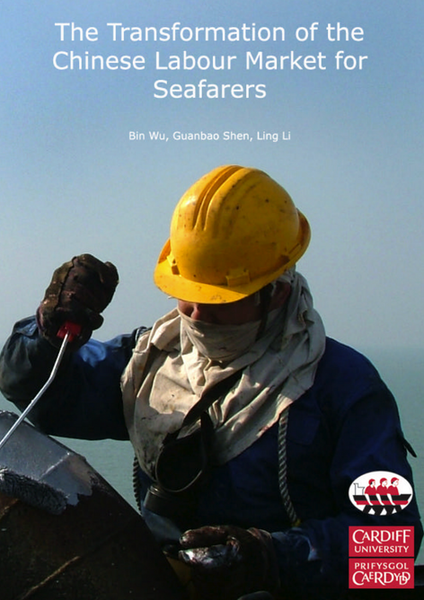
Wu, B., Shen, G. and Li, L., 2007. The transformation of the Chinese labour market for seafarers.
Wu, B., 2005. The world cruise industry: A profile of the global labour market. Seafarers International Research Centre.